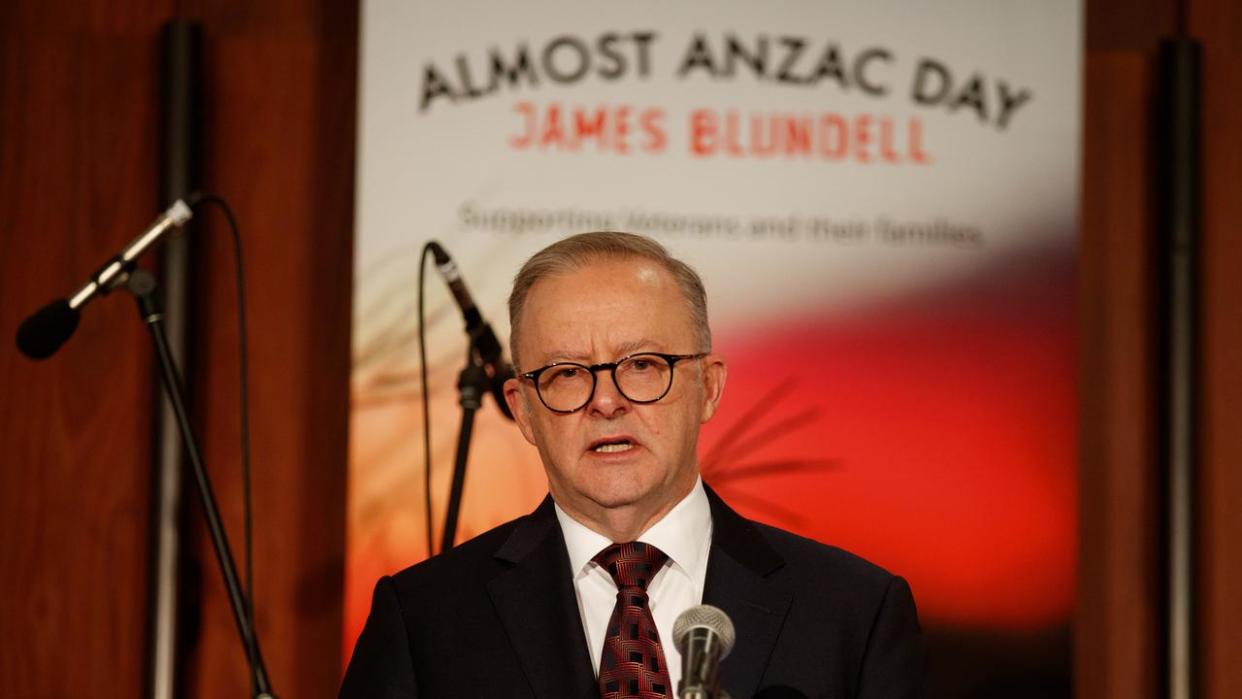Albo’s historic act to mark Anzac Day

Anthony Albanese will commemorate Anzac Day by walking part of the Kokoda Track alongside his Papua New Guinea counterpart, James Marape.
As Australia pushes for closer diplomatic ties with the Pacific nation, the two prime ministers will spend a few days walking before attending a Dawn Service at Isurava on April 25 to commemorate the 600 Australians who died during the Kokoda campaign of the Second World War.
Announcing his visit on Friday, Mr Albanese said it would honour the sacrifice of hundreds of Australians who fought along the track to defend against a Japanese invasion more than 80 years ago.

“This year on Anzac Day I will be in Isurava on the Kokoda Track, taking the opportunity to show my respect to the remarkable effort to protect our nation at one of its darkest hours,” he said in a speech on Friday.
“We will gather in the peace that is the gift to us from generations of Australians who have taken up arms in our name.
“We will gather to remember all who have served and all who serve now. We will remember all who lost their lives, all who survived and came home.”
Mr Albanese will become the first sitting prime minister to walk the famous track, and it follows his historic address to the PNG parliament last January – the first Australian prime minister to do so.
Mr Marape addressed Australia’s parliament in Canberra in February.
Amby | |
8.30am | March commences outside the Amby Shire Hall (please assemble prior to this time). |
8.45am | Service at the Cenotaph. |
Mungallala | |
8.30am | Service at Mungallala Memorial Hall, Redford Street (please assemble from |
Mitchell | |
6am | Dawn Service at Mitchell Memorial Park, Cambridge Street. |
6.30am | Breakfast to be served for returned service members, widows and invited guests. |
10.30am | March commences outside Mitchell Shire Hall, Cambridge Street (please assemble |
11am | Service at the Cenotaph, Mitchell Memorial Park, Cambridge Street.6am: Dawn Service at Mitchell Memorial Park, Cambridge Street. |
Muckadilla | |
6am | Rising Sun Dawn Service at Cenotaph, followed by breakfast at the Muckadilla Pub |
Injune | |
6am | Dawn Service at the Cenotaph, Injune Memorial Hall followed by Breakfast at Café on |
10am | March commences in Station Street (please assemble at the Post office from 9.45am). |
10.30am | March arrives at Injune Memorial Hall for the Commemorative Service. |
11.30am | Morning tea to follow at Injune Supper Club. |
Roma | |
3.30am | RSL Hall open for coffee prior to Dawn Service. |
4.15am | March commences at RSL Hall to the Cenotaph on Bungil Street. |
4.25am | Dawn Service commences at the Cenotaph. |
5am | Gunfire breakfast at the RSL Hall. |
9am | Assemble in Station Street for March to the Cenotaph. |
9.30am | March commences, following Heroes Avenue to the Cenotaph. |
10am | Service commences at Cenotaph. |
12:30pm | Lunch to be served in the RSL Hall for returned service members, widows and |
Wallumbilla | |
5.45am | Assemble at Wallumbilla Police Station, High Street march proceeding to |
6am | Dawn Service commences at Wallumbilla War Memorial, Chadford Street. |
6.45am | Breakfast at the Wallumbilla Memorial Hall |
8.45am | Assemble at Wallumbilla Police Station, High Street march proceeding to |
9.00am | Morning Service commences at Wallumbilla War Memorial, Chadford Street. |
10.15am | Morning tea to follow service at Wallumbilla Memorial Hall |
Yuleba | |
6am | Dawn Service commences at Yuleba War Memorial, Garth Cox Park, Stephenson |
Jackson/Noonga | |
10.30am | Service at the Old Play Shed. Light refreshments will follow. |
Surat | |
11.30am | March commences at Council Office, Burrowes Street to Surat Memorial Park, |
11.45am | Service commences at Surat Memorial Park, Marcus Street. Following the service |
1.15pm | Community BBQ at Surat Riverwalk canteen following the service. |
Kevin Rudd walked the track in 2006 while opposition leader, as did Scott Morrison in 2009 while a backbench MP.
The famous track stretches 96km – 60km in a straight line – from the Kokoda Plateau to Owers Corner, where Australian forces were stationed in July 1942 to stop the Japanese advancement on capital Port Moresby.
In addition to the 600 people who died, thousands more Australians were seriously injured or became ill.


